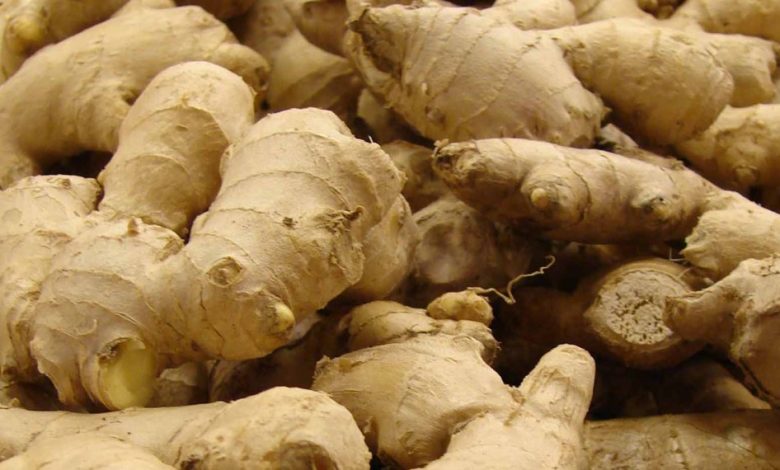Fact-Check: Mixture of Ginger and Cinnamon as contraceptives scientifically unproven

Claim: An Instagram user claimed that a boiled mixture of ginger and cinnamon can serve as a form of contraception to prevent unwanted pregnancy.
Verdict: Insufficient evidence. Experts reveal that while these spices are used in traditional practices, more rigorous clinical trials and peer-reviewed studies are needed to validate their effectiveness. Therefore, their potency and reliability remain unproven.
Full Text
Cinnamon, also known as Cinnamomum, is a popular spice obtained from tree bark, renowned for its culinary and medicinal uses. Historically, the leaves, roots, flowers, and fruits of the cinnamon tree have been utilized for culinary and medicinal purposes. Cinnamon is known for its potential benefits, such as improving blood sugar control, providing antioxidants, managing cholesterol levels, supporting heart health, potentially enhancing cognitive function, and protecting against neurodegenerative diseases. However, consuming it in large quantities may stress the liver and potentially lead to liver damage over time.
Ginger, scientifically known as Zingiber officinale, is a spicy, aromatic root used in cooking. It has a long history as a traditional remedy in folk medicine, where it is widely used to treat various ailments. Ginger is valued for its spicy flavor and health benefits, including alleviating nausea, aiding digestion, reducing inflammation, boosting immunity, and potentially improving blood sugar levels and heart health.
An Instagram user, Joyetor, claimed that consuming a boiled mixture of ginger and cinnamon would prevent pregnancy. “If you are looking for a safe, 100 percent side-effect-free method of preventing pregnancy at home, consider this recipe: boil ginger and cinnamon in water, let it steep for 20 minutes, and drink the mixture twice a day around the time you plan to have sexual intercourse,” the user said.
As of July 10, the claim had garnered 5,276 likes, 565 comments, and 2,603 shares since the post.
Tiaramen_essentials commented, “Joygiver with the ogbonge tips, definitely trying this.”
Another follower, ebony_blog2, said, “Aww, my esan sis, thanks so much for this. I’ll save this video for the future.”
Given the potential impact on public health, DUBAWA initiated a fact check to verify its accuracy.
Verification
A study reviewing plants used as contraceptives revealed that ginger powder has abortifacient properties, meaning it can induce abortion and has been traditionally used for such purposes in some cultures. The study also mentions that Zingiber roseum, another species of ginger, is noted for its anti-implantation activity, suggesting a contraceptive effect by preventing embryo implantation. However, this article lacks detailed experimental data or clinical trials to confirm ginger’s efficacy and safety as a contraceptive.
Another article notes that cinnamon is traditionally believed to stimulate the uterus and potentially lead to miscarriage, although it is not an immediate solution for abortion. It suggests that consuming cinnamon tea, made by adding it to boiled water and drinking it on an empty stomach, might be recommended for those seeking to avoid pregnancy. However, this method is not an immediate solution for abortion.
Experts’ Opinions
In an interview, Qudus Lawal, a gynecologist at Irrua Specialist Teaching Hospital in Edo State, explained to DUBAWA that there is no scientific basis for the claim that boiling ginger and cinnamon and drinking the mixture can serve as a contraceptive. Mr. Lawal said, “Contraception is a very serious matter, and for any agent to be considered a contraceptive, it must undergo rigorous clinical trials to prove its efficacy and safety. Neither ginger nor cinnamon possesses the necessary properties to qualify as a contraceptive, and relying on them for such purposes is both ineffective and potentially harmful.”
He outlined various medically approved contraceptive methods, including hormonal contraceptives (such as pills, patches, and injections), barrier methods (such as condoms and diaphragms), and natural methods (such as withdrawal and fertility awareness).
Henry Iwunze, another gynecologist at Simone Hospital in Aba, told DUBAWA, “The use of ginger and cinnamon as contraceptives is rooted in traditional practices. Historically, these methods have been used in various cultures and may have anecdotal support.” However, he emphasized that while herbal medicine may claim that ginger and cinnamon have contraceptive properties, these claims have not undergone rigorous scientific testing or clinical trials to ensure their safety and efficacy. “Without such evidence, we cannot recommend their use as a reliable contraceptive within the medical community.”
Iwunze concluded, “As a medical professional, I must adhere to evidence-based practices. Outside of my professional capacity, I acknowledge that some traditional methods are valued in various cultures. However, I would advise caution and recommend consulting with a healthcare provider for reliable contraceptive methods.”
Conclusion
While ginger and cinnamon have been used historically in traditional medicine for various purposes, including as contraceptives, there is insufficient evidence to support their efficacy.
(Premium Times)





